选择热点
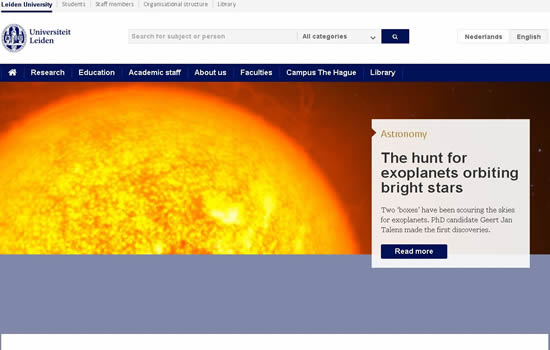 荷兰莱顿大学
荷兰莱顿大学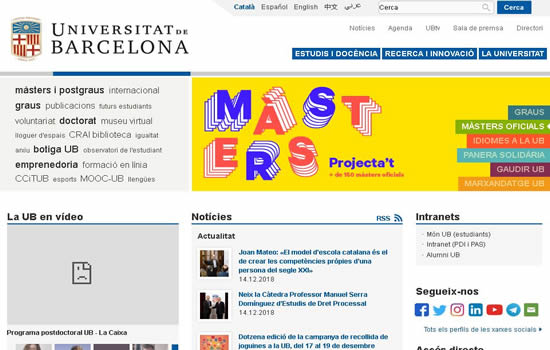 西班牙巴塞罗那大学
西班牙巴塞罗那大学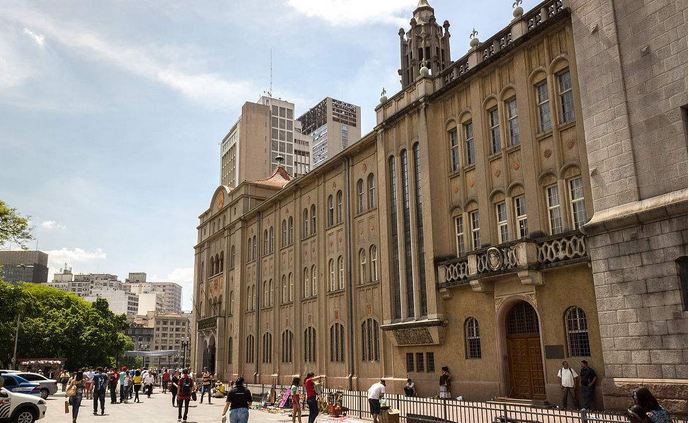 巴西圣保罗大学 University of Sao Paulo, Brazil
巴西圣保罗大学 University of Sao Paulo, Brazil 台湾南华大学 University of South China in Taiwan
台湾南华大学 University of South China in Taiwan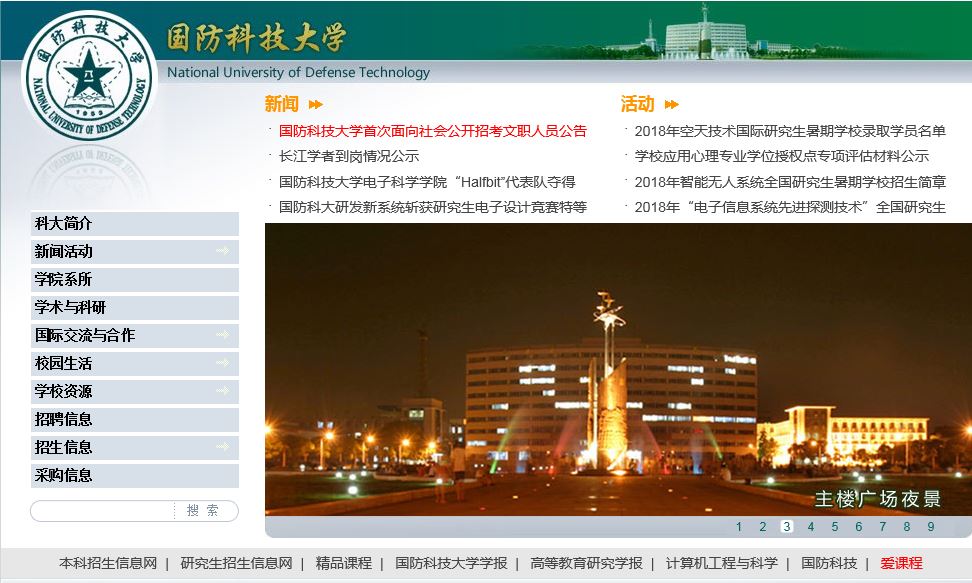 科技大学 National University of Defense Technology
科技大学 National University of Defense Technology 南京大学 Nanjing University
南京大学 Nanjing University 上海复旦大学 Fudan University
上海复旦大学 Fudan University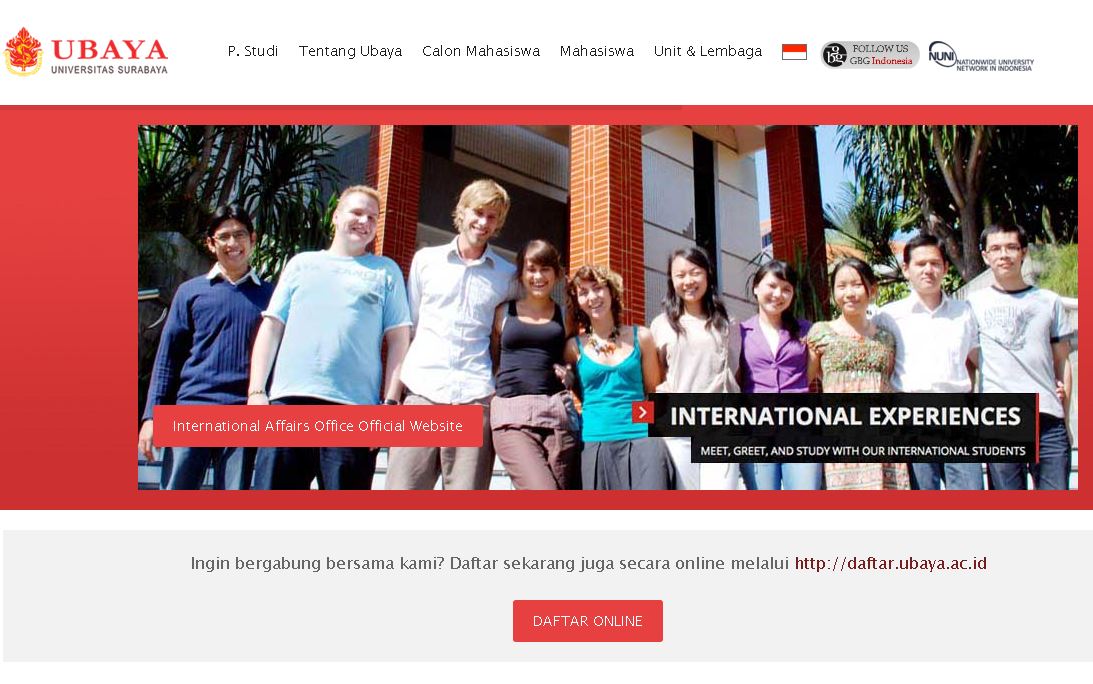 泗水大学(Ubaya)
泗水大学(Ubaya)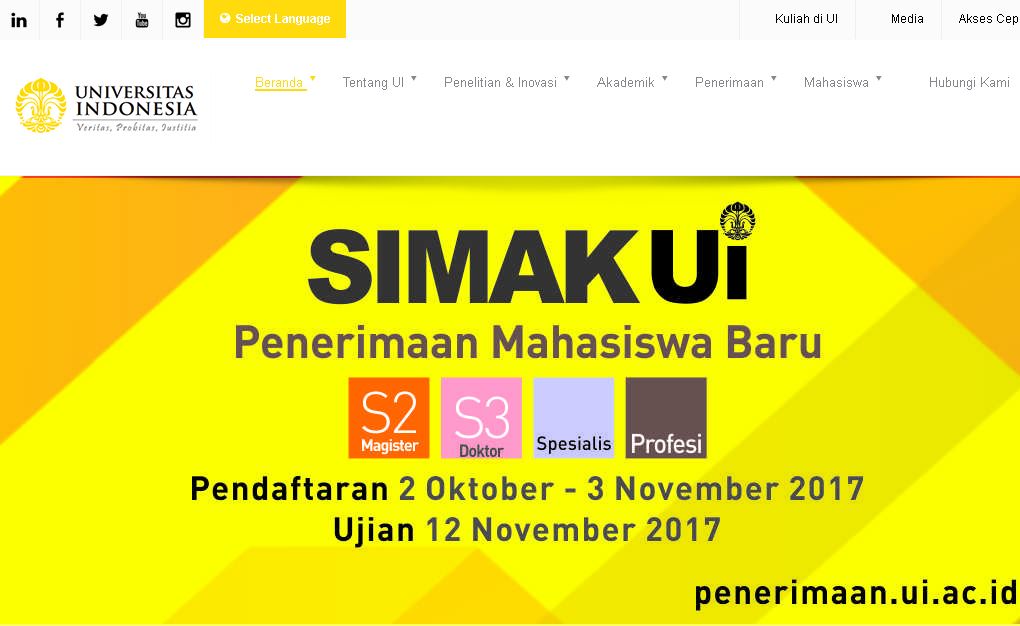 印尼大学 universitas indonesia
印尼大学 universitas indonesia 越南某大学 Vietnam National University
越南某大学 Vietnam National University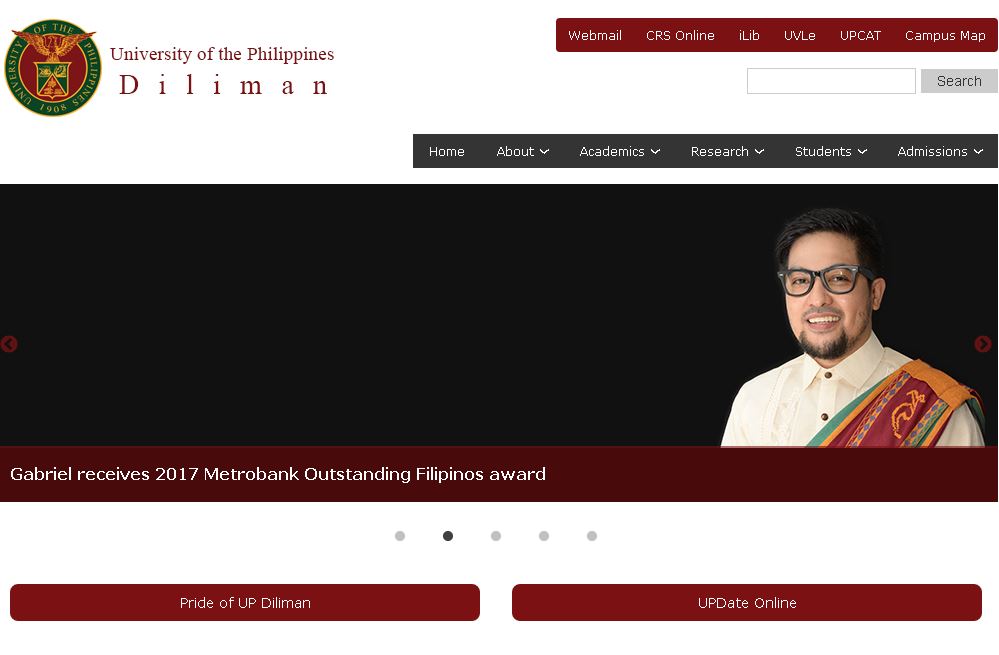 菲律宾大学 University Of The Philippines
菲律宾大学 University Of The Philippines
情态动词can与could的用法
发布时间:2025-01-06
来源:大学网站
情态动词can与could的用法1.
表示能力(1) 表示现在的能力,用can:My sister can drive.
我妹妹会开车。
Everyone here can speak English.
这儿人人会说英语。
(2) 表示将来的能力,通常不用can或could,而用be able to的将来时态:I’ll be able to speak French in another few months.
再过几个月我就会讲法语了。
One day people will be able to go to the moon on holiday.
总有一天人们可以到月球上去度假。
但是,若表示现在决定将来是否有能力做某事,则可用 can:Can you come to the party tomorrow?
你明天能来参加我们的聚会吗?
(3) 表示过去的能力,有时可用could,有时不能用could,具体应注意以下几点:① 若表示过去一般的能力(即想做某事就随时可做某事的能力),可用could:Could you speak English then?
那时候你会说英语吗?
② 若表示过去的特定能力(即在过去特定场合做某事的能力),则不能用could,而用was (were) able to do sth,或用 managed to do sth,或用 succeeded in doing sth 等。
He studied hard and was able to pass the exam.
他学习很努力,所以考试能及格。
At last he succeeded in solving the problem.
他终于把那个问题解决了。
【注】could 不用来表示过去特定能力通常只限于肯定句,否定句或疑问句中,它则可以表示过去特定的能力:I managed to find the street, but I couldn’t find her house.
我想法找到了那条街,但没找到她的房子。
(前句为肯定句用managed to,不用could,后句为否定句,可用could)另外,could还可与表示感知的动词(如see, hear, smell, taste, feel, understand等)连用表示的特定能力:Looking down from the plane, we could see lights on the runway.
从飞机上向下看,我们可以看见机场跑道上的点点灯火。
还有在间接引语中,could也可表示过去特定的能力:He said he could see me next week.
他说他下周能见我。
2.
表示许可(1) 对于现在或将来的“许可”,要区分以下两种情况:① 表示请求允许(即请求别人允许自己做某事),两者均可用,但用could 语气更委婉:Can [Could] I come in?
我可以进来吗?
注:此时也可用may或might,其中might和could均不表过去,只表委婉语气。
② 表示给予允许(即自己允许别人做某事), 一般只用 can,而不用 could:"Could [Can] I use your pen?
" "Yes, of course you can.
" “我可以借用你的钢笔吗?
”“当然可以。
”(不能说Yes, you could.
)(2) 对于过去的“许可”,也要区分以下两种情况:① 表示过去一般性允许(即表示某人随时都可以做某事),用can的过去式could:When I lived at home, I could watch TV whenever I wanted to.
我住在家里时, 想什么时候看电影就可以什么时候看。
(一般性允许)② 表示过去特定的允许(即表示在过去某一特定情况下允许进行某一特定的活动),则不用 could,而需换成其他表达(如had permission, was [were] allowed to):I was allowed to see the film yesterday evening.
昨天晚上允许我去看了电影。
(特定的允许,不能用 could)
【情态动词can与could的用法查看网站:[db:时间]】
表示能力(1) 表示现在的能力,用can:My sister can drive.
我妹妹会开车。
Everyone here can speak English.
这儿人人会说英语。
(2) 表示将来的能力,通常不用can或could,而用be able to的将来时态:I’ll be able to speak French in another few months.
再过几个月我就会讲法语了。
One day people will be able to go to the moon on holiday.
总有一天人们可以到月球上去度假。
但是,若表示现在决定将来是否有能力做某事,则可用 can:Can you come to the party tomorrow?
你明天能来参加我们的聚会吗?
(3) 表示过去的能力,有时可用could,有时不能用could,具体应注意以下几点:① 若表示过去一般的能力(即想做某事就随时可做某事的能力),可用could:Could you speak English then?
那时候你会说英语吗?
② 若表示过去的特定能力(即在过去特定场合做某事的能力),则不能用could,而用was (were) able to do sth,或用 managed to do sth,或用 succeeded in doing sth 等。
He studied hard and was able to pass the exam.
他学习很努力,所以考试能及格。
At last he succeeded in solving the problem.
他终于把那个问题解决了。
【注】could 不用来表示过去特定能力通常只限于肯定句,否定句或疑问句中,它则可以表示过去特定的能力:I managed to find the street, but I couldn’t find her house.
我想法找到了那条街,但没找到她的房子。
(前句为肯定句用managed to,不用could,后句为否定句,可用could)另外,could还可与表示感知的动词(如see, hear, smell, taste, feel, understand等)连用表示的特定能力:Looking down from the plane, we could see lights on the runway.
从飞机上向下看,我们可以看见机场跑道上的点点灯火。
还有在间接引语中,could也可表示过去特定的能力:He said he could see me next week.
他说他下周能见我。
2.
表示许可(1) 对于现在或将来的“许可”,要区分以下两种情况:① 表示请求允许(即请求别人允许自己做某事),两者均可用,但用could 语气更委婉:Can [Could] I come in?
我可以进来吗?
注:此时也可用may或might,其中might和could均不表过去,只表委婉语气。
② 表示给予允许(即自己允许别人做某事), 一般只用 can,而不用 could:"Could [Can] I use your pen?
" "Yes, of course you can.
" “我可以借用你的钢笔吗?
”“当然可以。
”(不能说Yes, you could.
)(2) 对于过去的“许可”,也要区分以下两种情况:① 表示过去一般性允许(即表示某人随时都可以做某事),用can的过去式could:When I lived at home, I could watch TV whenever I wanted to.
我住在家里时, 想什么时候看电影就可以什么时候看。
(一般性允许)② 表示过去特定的允许(即表示在过去某一特定情况下允许进行某一特定的活动),则不用 could,而需换成其他表达(如had permission, was [were] allowed to):I was allowed to see the film yesterday evening.
昨天晚上允许我去看了电影。
(特定的允许,不能用 could)
【情态动词can与could的用法查看网站:[db:时间]】
相关阅读
目录列表
资讯列表
英语资讯


共0条评论
网友评论温馨提示:您的评论需要经过审核才能显示,请文明发言!